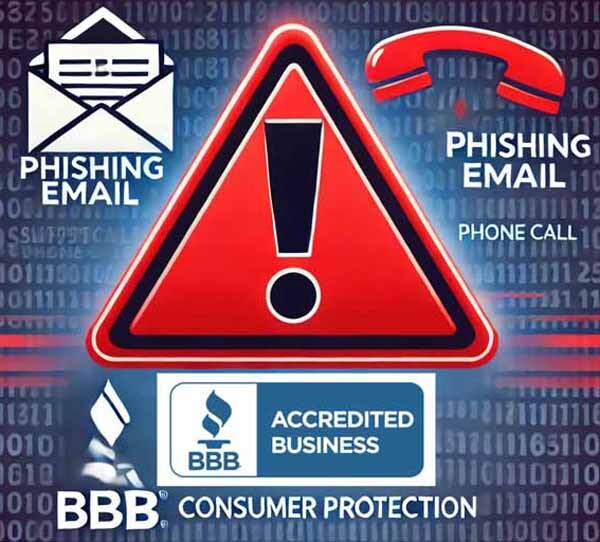JustTheFacts Max![]() February 18, 2025
February 18, 2025
4.4K views 0 Comments 0 Likes

DLNews Business:
Tax scams are among the most stubborn cons. They reappear often, each time with a slightly different spin. Some of the most common scams involve posing as the Internal Revenue Service (IRS) and trying to trick people into paying up or sharing personal information.
Common tax scams to look out for:
IRS Impersonation Scams: These scams, often initiated by phone calls, involve fake tax demands with threats of arrest. One tricked victims into providing personal information under the pretense of issuing tax refunds. They specifically targeted college students and the claim of unpaid "federal student tax."
Tax Identity Theft Scams: Watch out for tax identity theft, where scammers use your government ID to file false tax returns or secure employment, often unnoticed until the IRS informs you of suspicious activity.
Email Phishing Scams: The emails appear from the IRS and include a link to a fake website that mirrors the official IRS website. These emails state, “you are to update your IRS e-file immediately.” The emails sometimes mention USA.gov and IRS.gov (without a dot between "IRS" and "gov").
BBB offers tips to help you avoid tax scams:
The best way to avoid tax identity theft is to file your taxes as early as possible, before a scammer can use your information to file a fake return.
Write down your Identity Protection PIN (IP PIN) from the IRS before you file your return. This is a six-digit number which confirms your identity and your Social Security number. Visit the IRS for more information about the program. Read BBB's tips about the IRS PIN.
The IRS does not initiate contact with taxpayers by email, text message or social media to request personal or financial information.
Only deal with trustworthy tax preparation services. See our tips for finding the right tax preparer for you.
Check out websites carefully and ensure you access the genuine IRS website when filing your taxes electronically or inquiring for additional information.
When reading emails and letters claiming to be from the IRS or CRA, watch for bad grammar and odd punctuation.
When in doubt, contact the IRS directly to confirm any contact you receive is legitimate.
If you are the victim of tax identity theft, contact the IRS at 1-800-908-4490. You should also file a complaint with the Federal Trade Commission (FTC) at ftc.gov/complaint or by calling 1-877-FTC-HELP. The FTC also offers a personalized identity theft recovery plan at identitytheft.gov.
Treat that information carefully if you get tax information delivered electronically from your employer or other entity. Download it onto a password-protected computer.
For more information on finding secure, trusted tax filing services, visit BBB.org or listen to Joe Ducey, a consumer protection expert who shares tips to keep you safe from scams.
Untitled
By JustTheFacts Max![]() 0
0
0
343
6
0
0
0
343
6
6 photos

Desert Local News is an invitation-only, members-based publication built on fact-checked, non-biased journalism.
All articles are publicly visible and free to read, but participation is reserved for members—comments and discussion require an invitation to join.
We cover local, state, and world news with clarity and context, free from political agendas, outrage, or misinformation.
Comments